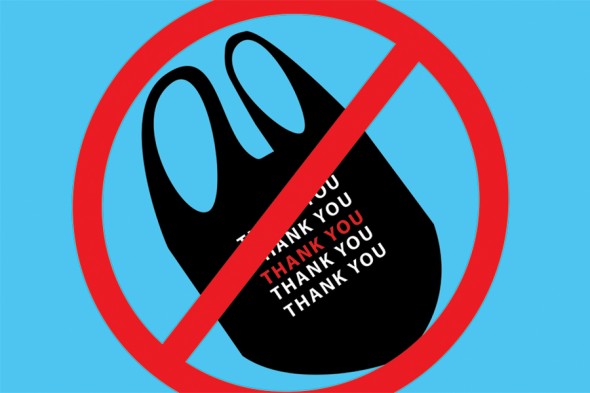Ban on plastic bags may not carry much weight with consumers
Chicago’s new ban on plastic shopping bags may not carry much weight with local customers, UIC experts say.
“It’s very difficult to make consumers make changes,” said Kim Moon, a lecturer in marketing in the College of Business Administration.
The ban, which became effective Aug. 1, was approved by the City Council last year in a 36-10 vote. Chain stores or franchises with more than 10,000 square feet must convert to recyclable paper bags, commercially compostable plastic bags or other reusable bags. Retailers and large grocery chains that don’t comply face a fine of $100 to $500 per day.
The ordinance excludes “non franchises” or stores under 10,000 square feet, including mom-and-pop stores. They have until Aug. 1 of next year to make the transition. Restaurants are not affected by the new law.
The result is a plastic bag ban in Chicago — but not really.
Aldermen intended to motivate Chicago businesses and consumers to convert to more sustainable carrying totes. But large chains like Target, Jewel-Osco and Walmart opted to thicken their plastic bags instead, giving customers free bags that can be re-used up to 125 times. Some retailers will encourage bag reuse by giving store discounts or credit to consumers who bring the bags back on their next shopping trip.
Tom Theis, director for the Institute of Environmental Science and Policy, says the new law is, at least, a first step. “The concept of reusable shopping bags has begun to take hold — which is always the better of the choices,” Theis said.
But switching to the thicker plastic isn’t much of a solution, Moon said. “Consumers will just have sturdier bags to reuse for their trash cans, lunches and dog waste.”
Cynthia Klein-Banai, associate chancellor for sustainability, says she hopes the ban discourages the use of plastic bags, but she has concerns about its effectiveness.
“Hopefully it charges a deterrent to that kind of usage, but people do get lazy,” Klein-Banai said.
To be effective, Moon said, the law must impact consumers’ pockets.
“The rewards and punishments for consumers aren’t stiff enough to move the needle to make the environment safer,” she said. “I think it would have to revolve around what consumers care about, and we all know what we care about: savings and rewards.”

